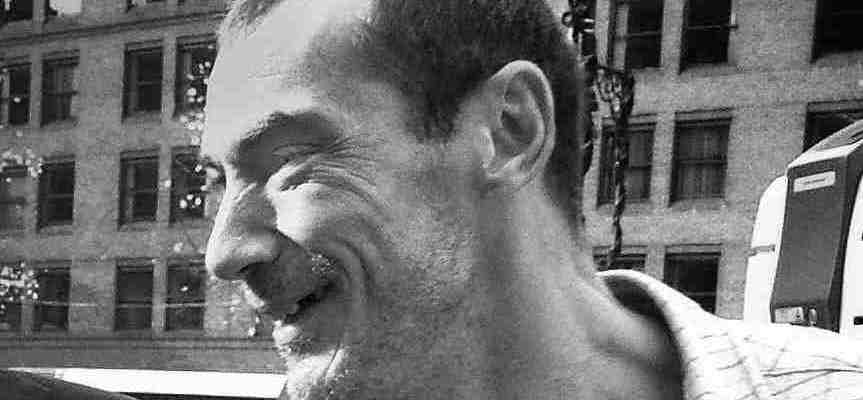‘Another childhood stolen by the state’ – Paul Blackburn’s 25 years in prison (2003)
Paul Blackburn was convicted in December 1978 for the attempted murder of a nine-year-old boy.
He had been interrogated for 5 hours without a solicitor present, and alleges that he would have confessed to ‘anything’ given the oppressive nature of the officers’ questioning.
Blackburn did not match the description of the attacker and there was no forensic evidence to connect him to the brutal crime, which had been committed in broad daylight. He spent 25 years in prison – ten years longer than the usual ‘tariff’ for murder because he refused to admit his guilt.
Blackburn sought leave to appeal but a Single Judge refused the application in September 1979 and the Full Court refused the application in March 1981. In May 1995 a petition on behalf of Blackburn was submitted to the Home Secretary.
No grounds for referral were found. Blackburn later applied to the Criminal Cases Review Commission (CCRC) and a review of his case began in August 2001. In August 2004 the CCRC referred his case back to the Court of Appeal.
Editorial writers will know only too well that a miscarriage of justice (in the strict sense of the word) does not officially exist until the appeal courts decide to quash a criminal conviction after a successful appeal. The extremities are laid bare – one day Blackburn is a violent, irrational, psychotic criminal and the next he may be just another innocent miscarriage of justice. So no one can begin to take into account the many damaging symptoms of long-term wrongful conviction that someone like Blackburn may already exhibit: like chronic rage and distrust, anxiety, panic attacks, depression, sleep impairment or social withdrawal.
There are many other factors that point to his wrongful conviction too, such as the years he has consistently denied guilt of the offence, his failure to obtain parole for 25 years and his constant physical and emotional rebellion against the prison system.
Then there are the many holes in the case against him: that aged 14 he wasn’t allowed a solicitor; that it was unlikely such a vulnerable, troubled child could have written a confession with such a command of vocabulary as the statement displays; that the police apparently took more than 2000 statements, none of which incriminated Blackburn; that Blackburn was the wrong age, had different coloured hair and wore different clothes to those described by the victim.
But on 24th May when Blackburn’s appeal will be heard, the judges will not be concerned with or considering his possible innocence. They will merely (again) test the ‘safety’ of the contested conviction against fresh evidence provided by his lawyer, Glyn Maddocks of Gabb & Co.
Compensation aside, if Blackburn’s conviction is quashed, the criminal justice system agents (investigating police officers, original defence lawyers, psychiatrists, forensic experts, ministers etc) will not have to accept any liability for the harm caused by 25 years of jail. Failure to act in the best interests of a juvenile for 25 years does not presently constitute unlawful behaviour by anyone, in spite of the long awaited Human Rights Act coming into force.
We may demand reform and ask ourselves how such a serious injustice could still be allowed to happen. Why is it that British justice, in 2005, cannot afford to cater for the possibility of innocence in the realm of criminal obsession? Instead it is easier than ever to jail the innocent. What has happened to Blackburn may seem like an out-of-the-ordinary matter, but he is one of thousands wrongfully convicted each year.
Paul Blackburn writes about his experiences in Judge For Yourself How Many are Innocent (Roots Books), by L A Naylor, with a foreword by Paddy Joe Hill (Birmingham 6). Upi can order the book from Amazon here: http://www.amazon.co.uk/dp/0954743709/ref=cm_sw_r_tw_dp_nSqPwb0Q4EM47
Further information: 07811 967128 www.writesite.org.uk
Paul Blackburn’s legal representative is Glyn Maddocks, Gabb & Co. Tel 01873 810629.
Written by L A Naylor
The case was investigated by Just Television and broadcast as part of its Trial and Error series. The program was presented by David Jessel, who included the case in his 1994 book TRIAL AND ERROR. Chapter 10 of the book, Paul Blackburn – ‘Work in Progress’, is written by the program’s research consultant Bob Duffield. This is a long article, and has, therefore, been presented as a printable version in pdf format – click here to see the article.
See also
Paul Blackburn (UK)
Paul Blackburn (born July 1 1963, Salford, Greater Manchester, England) was a British prisoner who was convicted at the age of 15 of attempted murder, served a life sentence, and was later found to have been wrongly convicted. He served nearly 25 years in prison.
https://www.wikiwand.com/en/Paul_Blackburn_(UK)
‘Crackheads are fine. It’s Asda that scares me’
Paul Blackburn spent 25 years in jail for a crime he didn’t commit. Now at 45 he’s still getting to grips with a world he last experienced as a teenager.
http://www.theguardian.com/uk/2009/jun/09/paul-blackburn-wrongly-convicted
Killing bid conviction overturned
Officers who had interviewed Mr Blackburn at the time testified on oath that he had written his own statement. But the judges said new linguistic evidence, which suggested police had been significantly involved in the statement’s wording, led them to believe that the officers had lied. Lord Justice Keane said: “We cannot escape the conclusion that they cannot have told the truth about the written confession.”
http://news.bbc.co.uk/1/hi/england/manchester/4579853.stm
Man has conviction overturned after 25 years in jail
Mr Blackburn, now 41, was released on life licence in March 2003. The court heard that his detention had been “clearly prolonged” by his persistent assertions that he was wrongly convicted.
http://www.telegraph.co.uk/news/1490719/Man-has-conviction-overturned-after-25-years-in-jail.html


Leave a comment